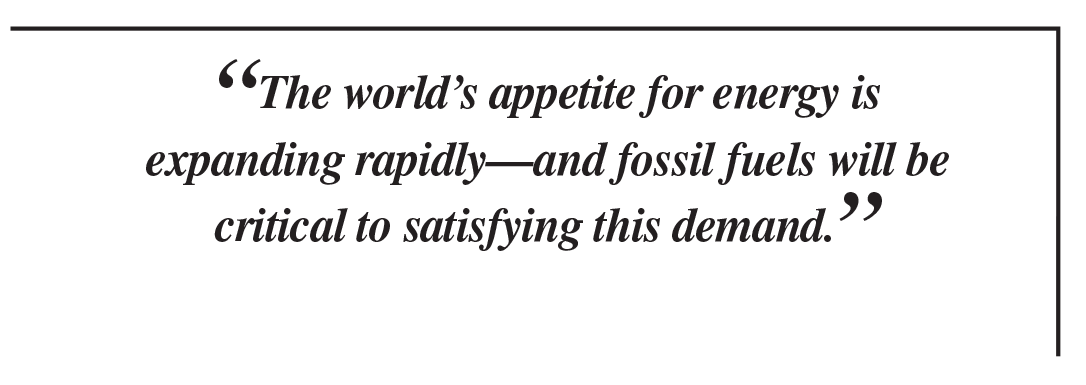
International Energy Agency Emphasizes Vital Importance Of Investing In Hydrocarbons
The International Energy Agency’s latest Global Energy Review 2025 offers a stark reminder to policymakers and citizens concerned about their energy needs: oil and natural gas remain indispensable to meeting growing global energy demand. The report captures energy trends from 2024, and clearly shows that the world’s appetite for energy is expanding rapidly—and fossil fuels will be critical to satisfying this demand.
Published in March, the report comes on the heels of recent comments made by EIA Executive Director Fatih Birol at CERAWeek. Speaking in Houston, Birol did not mince words in asserting that more investment in oil and natural gas will be essential to fulfilling our future energy needs. In fact, Birol even went so far as to say that he needed to make it clear that “there is a need for oil and gas upstream investments, full stop.”
In recent months the agency’s stance has become unequivocal: robust investment in oil and gas infrastructure is crucial to maintaining energy security worldwide.
The IEA report highlights natural gas specifically as a key energy source, with global consumption hitting an all-time high in 2024. It notes that the fuel is well-positioned to help meet future energy needs if necessary investments are made.
Demand for natural gas grew by 2.7% globally in 2024. This increase was driven primarily by emerging economies, but demand rose across all regions, including a notable 1.9% increase in the United States alone.
The IEA also explained the advantages of natural gas in comparison to renewables. When Brazil and Colombia faced severe droughts that limited hydropower production, natural gas was there to save the day.
In addition to providing consumers with reliable energy supplies, natural gas also continues to play a significant role in emission reductions. The United States saw energy-related CO2 emissions drop by 0.5% in 2024, largely because of coal-to-gas switching. In fact, emissions from the U.S. power sector have declined more than 35% since 2005 because of this ongoing transition.
A peer-reviewed study published by the Miami University of Ohio in March also underscored the significant role of the U.S. shale revolution in creating a greener economy. Researchers found that natural gas development has led to an average annual reduction of 10.5% in CO2 emissions per capita, with overall U.S. greenhouse gas emissions per capita decreasing by 7.5% annually.
In emerging economies, natural gas demand increased faster than coal (growing 3.7% compared with 2%), thanks to its clean-burning properties. The shale revolution continues to be one of the greatest industry achievements not only for economic security, but for environmental stewardship as well.
The world will need the electricity that natural gas generates. The IEA report emphasized that global electricity demand soared by 4.3% in 2024, nearly double the average annual increase over the past decade. Technological progress—particularly AI—and rapid economic growth are fueling unprecedented electricity consumption.
During CERAWeek, Federal Energy Regulatory Commission Chairman Mark Christie argued that natural gas would be critical to meeting AI’s exponentially-increasing needs.
“We’re going to build combined-cycle gas to meet this load from data centers. We have to because there’s no other way to serve it,” he says.

JEFF ESHELMAN is president and chief executive officer of the Independent Petroleum Association of America and the founder/executive vice president of Energy In Depth. Along with more than two decades at IPAA, he previously worked at the Defense Logistics Agency, the White House Office of National Drug Control Policy and three public affairs firms.
For other great articles about exploration, drilling, completions and production, subscribe to The American Oil & Gas Reporter and bookmark www.aogr.com.
















